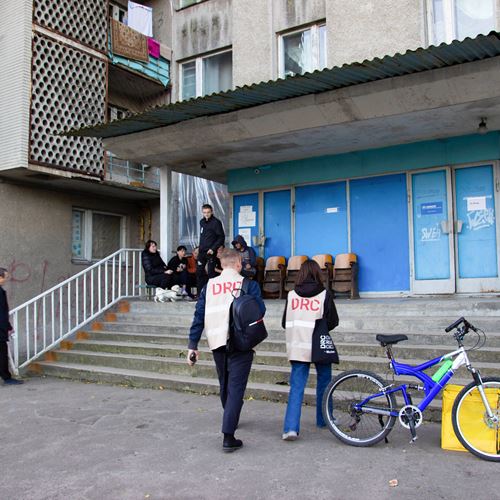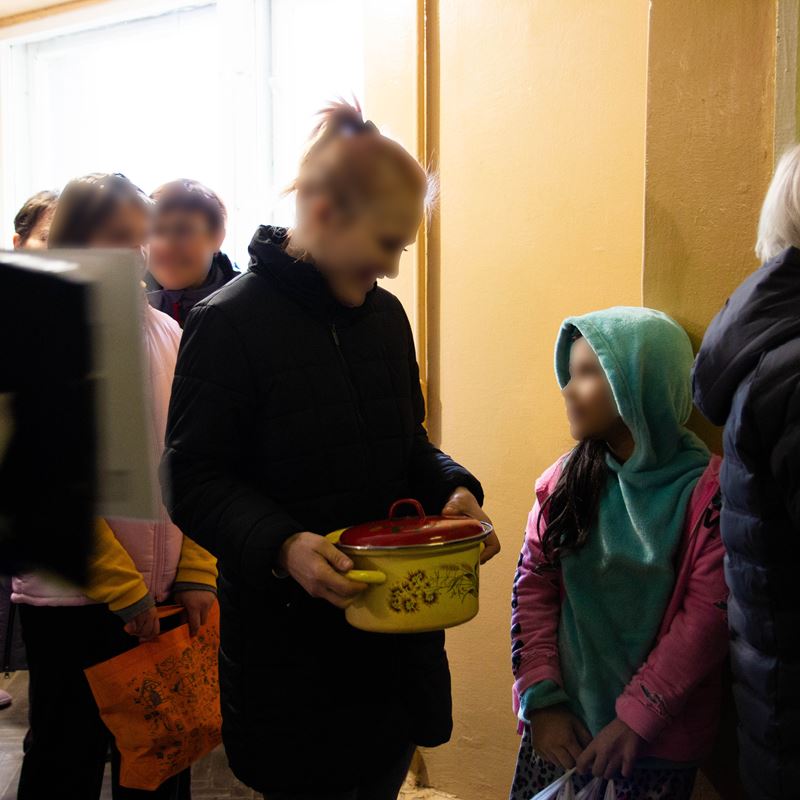Not long ago, nobody even passed by on the small road that leads to the former Commercial Academy that had been empty for several years. But the worn-out building has suddenly come to use as emergency shelter, and people are now desperately waiting for more spaces to become available there.
‘We are slowly making progress and take more people in whenever and wherever we can,’ tells Svitlana.
She retired as a teacher a few years back, but when the crisis started evolving after 24 February this year, and millions of people were displaced in just days and weeks, fleeing from intense shelling in east towards safer areas in west, Svitlana knew that it was time for her to act. Thousands of people from the Donbas-region and southern parts of Ukraine arrived in Lviv and needed shelter and protection. She volunteered and was sent to the dormitory to open and run the shelter there.
Basic repairs
The dormitory was originally built with rooms for 600 students, but the abandoned blocks can potentially accommodate up to 1,000 internally displaced persons. Facilities are run down and needs to be prepared and slightly improved to become livable after being left for years.
One family is living in what used to be the reception of the dormitory and all thinkable vacant rooms and spaces are turned into some use as soon as the basics are in place with beds, blankets, access to toilets, water, showers, interim kitchens and other shared facilities in communal areas.
‘We have managed to create room so far for a little over 400 people and more are coming as we get the work done,’ Svitlana tells as she opens the doors to yet another floor and shows the improvements underway in the first block. Each student room hosts on average three people, and for every eight rooms – meaning 24 people – there is now access to one shower.
A constant race against time
Next step is to start work on another block and free more rooms, and, when possible, to change some of the old and broken windows before the winter sets in soon.
When asked about a typical workday and the scope of her responsibilities, Svitlana tells how there is no longer time to rest and that she needs to deal with everything from counseling people to distribute food, find more space for newly displaced, keeping her at the shelter from five in the morning till after midnight.
‘Sometimes, the most important thing is to just listen to people and let them share their grief and their individual stories – and the suffering seems to know no limits,’ she tells.
Safe spaces
‘People at all ages have found their way here - young and old, alone or in groups, injured, disabled or traumatised – and they have been on horrific journeys across frontlines, even multiple times fleeing from one place to another. Everyone here has all either seen or experienced things that will mark them for life,’ says Svitlana. ‘But they feel safer here and we try to give them some peace of mind.’
Most people are arriving from badly affected areas such as Mariupol, Kherson, Mykolaiv, Odesa and other parts of eastern and southern Ukraine. They cannot even be among others right away and often need extended periods of time on their own to be able to get back on their feet, explains Svitlana who are amazed of the resources and strength of the people around her. Her new assistant is among those who recently managed to escape from Mariupol.

